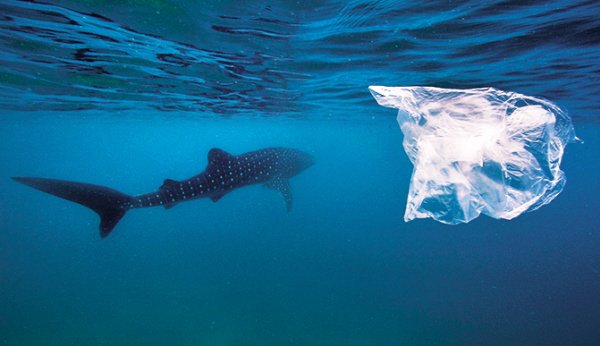The article originally appeared in The Times of India
Exactly three years back, single-use plastics (SUPs) took centre stage in India when PM Modi, on June 5, 2018, announced that the country would completely phase out these products by 2022. Now, barely a year before the deadline, the Union environment ministry has issued a draft notification to impose a nationwide ban by July 1, 2022.
The Draft Plastic Waste Management (Amendment) Rules, 2021, published just before the second wave of the pandemic hit the country, proposes to ban SUPs in three stages. Plastic carry bags of less than 120 micron thickness will be phased out by September 30, 2021. Plastic earbuds, sticks, flags, and thermocol decorations will be banned from January 1, 2022. Lastly, plastic and thermocol plates, cutlery, wrapping films, and banners will be prohibited from July 1, 2022.
The draft rule is a significant change in strategy, as the Centre, until now, had encouraged states to phase out these products. Consequently, 30 states/ Union territories have enacted laws to ban various SUPs. As the state-level bans have been largely unsuccessful, the Centre has decided to step in. But the question is, if the state bans have failed, will a similar national ban work?
Restrictions on SUPs have been attempted in India from 1999, when the sale of thin polythene bags was prohibited. Since then, three national laws and numerous state laws have been enacted to phase out these products. But in the last 22 years, we have not been able to eliminate even one product. Why? Is this because of poor enforcement (an oft-mentioned reason) or because of some other factors?

A closer look at SUP bans by states shows that the enforcements were carried out in fits and starts, and hence, it did contribute to the failure. But this was not the main factor; the absence of a strategic approach seems to be a bigger problem.
The foremost factor is the lack of alternatives to SUPs and the government’s failure in promoting them. So far, the thinking within the government has been that once the ban is enforced, alternatives would emerge to fill the gap. But this has not happened simply because there is no supportive infrastructure and incentive to produce alternatives in volume. Alternatives have remained a niche business as the government never had a policy to mainstream them.
The unrealistic time frame for phasing out these products is the second important factor for the failure. Bans have been imposed either immediately or within few months, providing little time to the industry and users to adapt. This time as well, most states/ UTs imposed an immediate ban, threatening the livelihoods of millions of people.
Experience worldwide shows that a total ban on widely-used products requires an incremental approach to change the economy and public behaviour. This is precisely the reason why European countries have given themselves at least a decade to eliminate SUPs. We, on the other hand, want to do it in months!
The success of bans is also linked to local waste management practices, the third factor. States like Kerala and Sikkim had more success than others because of their long-running campaign on waste management. Therefore, a sound waste management ecosystem, including segregation, collection, and recycling, is a prerequisite to manage SUPs, which doesn’t exist in most states.
The fourth important factor is an overreliance on bans while ignoring other instruments such as fiscal incentives and disincentives, certification and labelling, and extended producer responsibility. Our propensity to rely only on command and control to fix environmental problems is taking us nowhere. We need to use both carrots and sticks to eliminate SUPs.
Lastly, reducing SUPs requires a long-term vision, strategy and targets for the plastic industry. While on the one hand, the central government is proposing to ban SUPs, on the other, it is also promoting the plastic industry. This contradiction is at the heart of the SUP conundrum. To resolve this, India needs a comprehensive national strategy that embeds the circular economy principles in the plastic industry. The goal is not just to eliminate SUPs but also to reduce plastic production and consumption, improve waste management and reduce plastic pollution.
As India approaches the 2022 deadline, the pressure on the central government is mounting to do something. A note of caution at this point is that hastily enacted legislation has not worked in the last two decades and is not likely to deliver in the future as well. Therefore, the environment ministry must carefully examine past successes and failures before enacting another law to ban SUPs.
Chandra Bhushan is one of India’s foremost public policy experts and the founder-CEO of International Forum for Environment, Sustainability & Technology (iFOREST).
